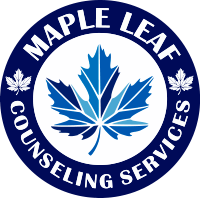When we think about our childhood, we often reflect on it with a sense of nostalgia or categorize it as a stage of life characterized by innocence and joy. Unfortunately, for some, childhood can be a time of significant hardship, characterized by events that lead to emotional and psychological scars that endure into adulthood. Understanding the deep-rooted impact of childhood trauma and the pathways to healing is a crucial component of personal growth and well-being.
For help overcoming childhood trauma and improving your mental health, contact Maple Leaf Counseling today. Call 989.220.3060 or connect with our childhood trauma therapy program online. We’re here to support you.
Understanding the Effects of Childhood Trauma
Childhood trauma refers to any distressing event that a child perceives as threatening and dangerous. This can take many forms, from physical and emotional abuse to the death of a loved one or a significant traumatic event, and its aftershocks resonate for years if not a lifetime. The effects are pervasive, influencing every aspect of life, from relationships to work to health.
Here are some of the signs that an individual may have unresolved childhood trauma:
- Chronic anxiety
- Depression
- Difficulty managing emotions
- Problems forming close relationships
- High-risk behavior
- Low self-esteem
These symptoms are the tip of the iceberg, often masking deeper emotional wounds that can manifest in various ways.
Childhood trauma, particularly when it’s pervasive and severe, can lead to changes in brain structure and function. This includes alterations in the stress response system, the hippocampus, and the prefrontal cortex, affecting processes such as memory, emotional regulation, and decision-making. The scientific evidence underscores the fact that trauma is not just a psychological phenomenon but a physiological reality.
How A Childhood Trauma Therapy Program Could Help
A comprehensive childhood trauma therapy program offers a structured approach to addressing trauma-related issues. This approach could involve various modalities, including cognitive-behavioral therapy (CBT), eye movement desensitization and reprocessing (EMDR), and play therapy for children.
One of the most significant barriers to healing from childhood trauma is the silence that often surrounds it. Discussing painful experiences in a safe and supportive environment is a key part of the therapeutic process. Therapists specializing in trauma-informed care aim to create a space where individuals feel heard and understood, which can be a powerful antidote to the isolation that trauma can create.
Therapy also focuses on the story we tell ourselves about our lives. For many trauma survivors, this narrative is one of victimhood and powerlessness. Effective therapy helps individuals rewrite their story from one of passive suffering to active survivorship. It’s about reclaiming agency over one’s life and recognizing the strength that can come from facing and processing traumatic experiences. Treatment also helps individuals learn how to self-regulate their emotions and re-establish a sense of safety.
Start Trauma Therapy at Maple Leaf Counseling Today — Contact Us Now
The decision to begin trauma therapy is a significant one, but it’s the first step toward reclaiming a sense of safety, control, and joy in life. At Maple Leaf Counseling, our team is dedicated to providing compassionate and effective care to those who have experienced childhood trauma. If you or someone you know is struggling with the lingering effects of past trauma, know that you don’t have to face it alone. Reach out to us today at 989.220.3060 or online and take the first step toward a brighter, more fulfilling future.




